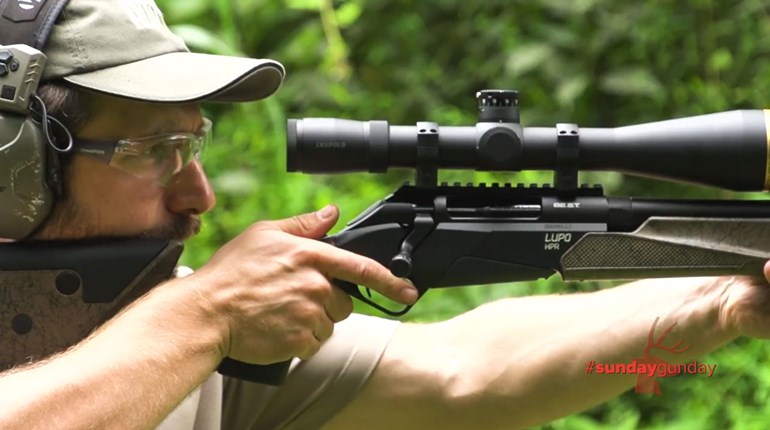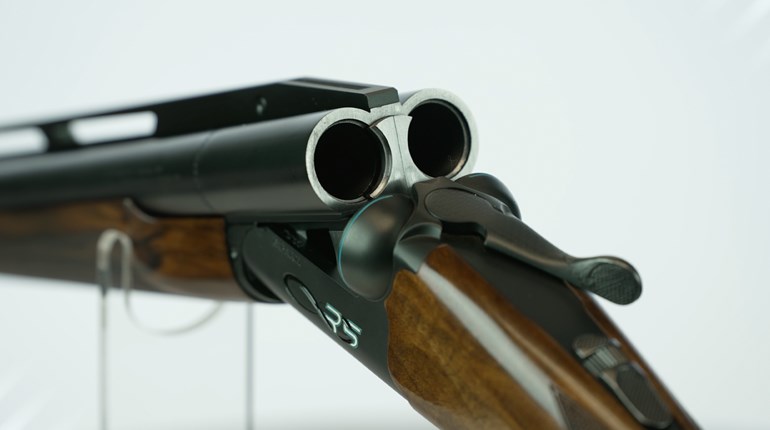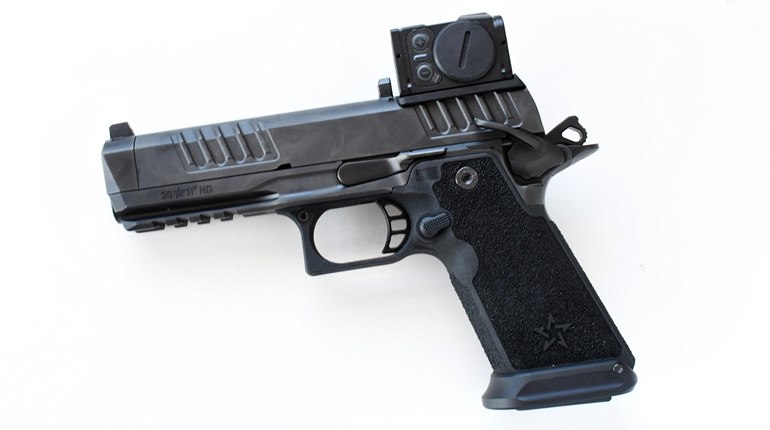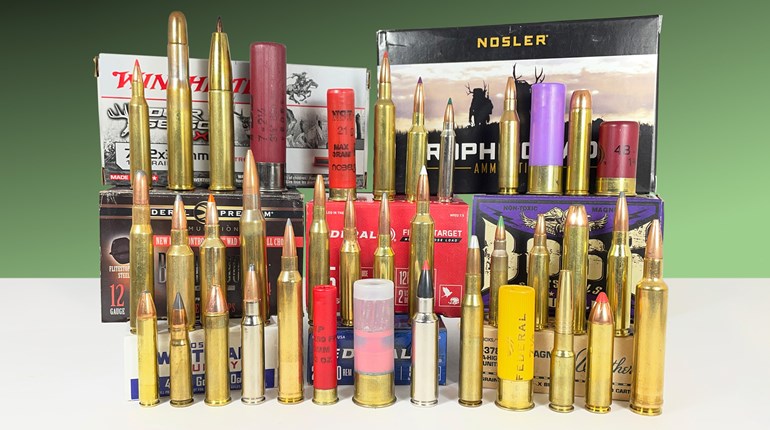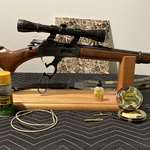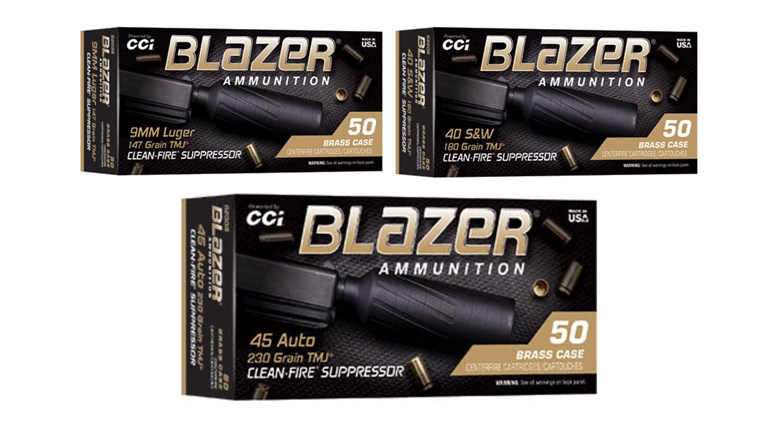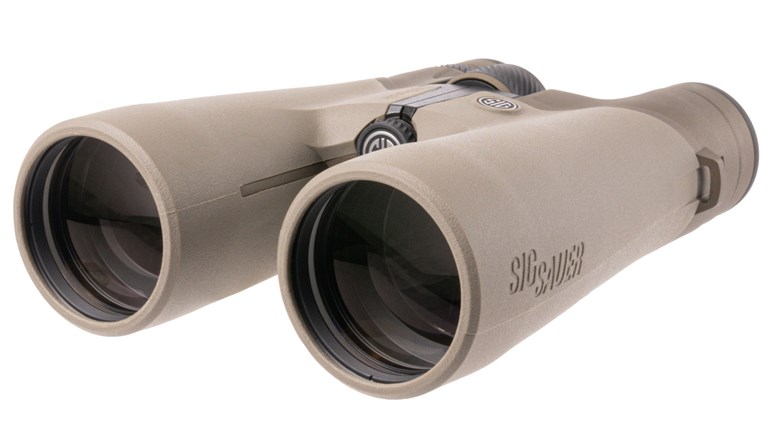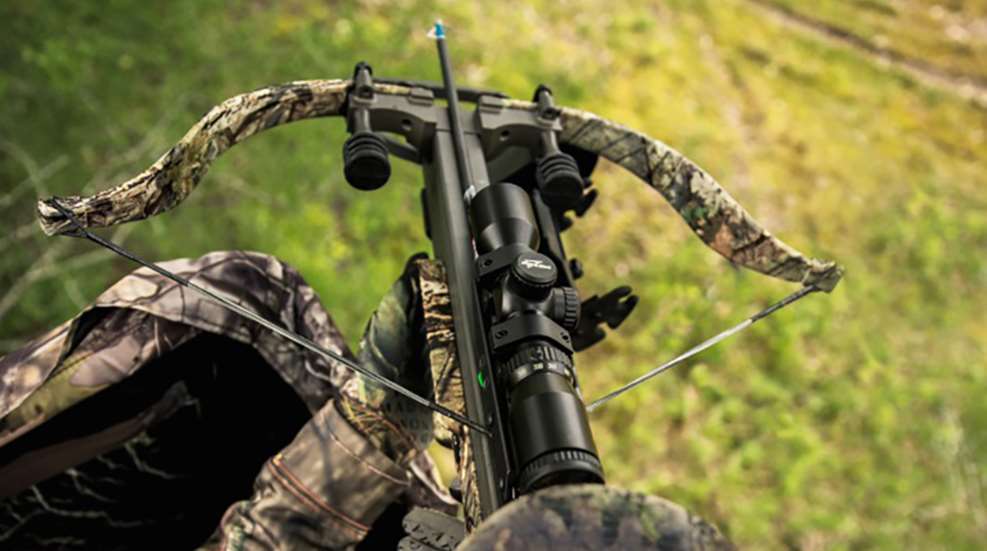
Crossbows are like cars; although most of us dream about hot rods, our lack of discretionary income prevents us from purchasing one. Too, said speedster isn’t necessarily the best tool for the job. Case in point: try to get a sick child to the emergency room in a blinding snowstorm using a sports car. That’s when a practical, all-wheel-drive model proves its worth. I know firsthand that sometimes less is more, and that’s exactly the case the Micro Axe 340.
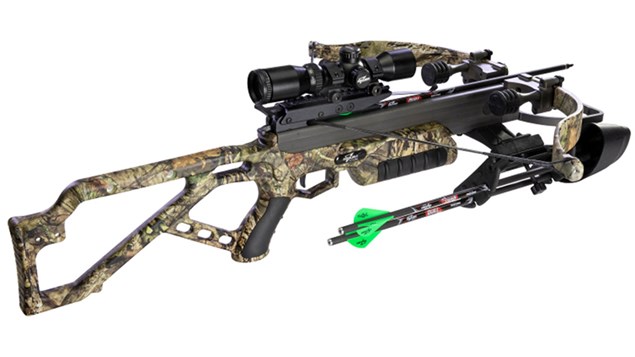
Crossbow users who acquainted with Excalibur’s excellent Micro-series crossbows will immediately feel comfortable with the Axe 340. However, there are some noteworthy differences between it and its predecessors.
Un-packaging the crossbow, you’ll note fewer parts and steps in the assembly process—the foot stirrup and bow (i.e. riser assembly) are attached as a single unit, so time is saved. More importantly, though, the barrel is drilled through to receive a cylindrical barrel nut. Once the nut is oriented toward the front of the bow, a single 5/16-18x2.25ʺ flat head cap screw secures the riser assembly to the front of stock assembly. It’s a resourceful design that permits rapid assembly and disassembly, which especially be appreciated by traveling archers.
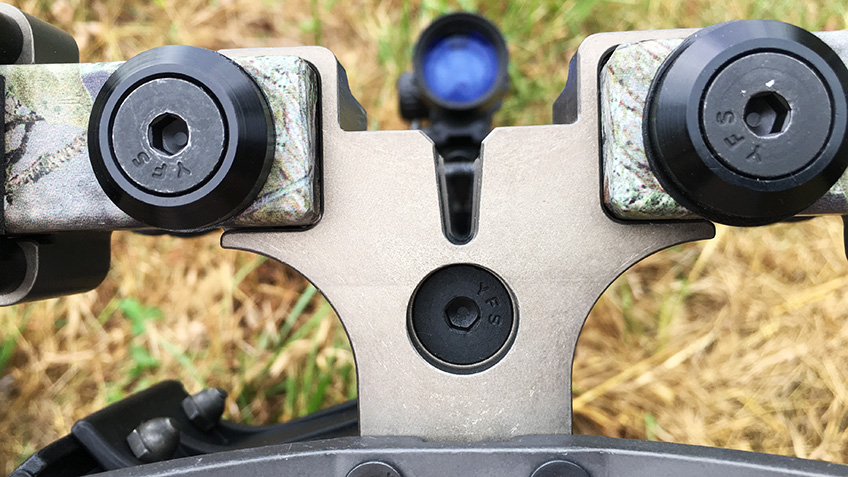
As an aside, older Micro models featured a rail with a cutout on the front, top to accept the riser assembly, which was held in place by a single screw from beneath. The new design is simpler and equally effective.
The Micro Axe 340’s limbs are short but stout; the bow’s cocking weight is 270 pounds. But, there’s a good reason for it. Since Excalibur utilizes maintenance-free, recurve-style limbs—combined with a short power stroke (i.e. a 13-inch draw)—the abbreviated limbs must be more substantial to generate the touted 340 fps velocity. The draw weight isn’t onerous when using the supplied rope cocking aid, and the company sells the detachable, C2 Crank Cocking Aid separately for users who struggle with drawing high-poundage bows. The tip-to-tip width is 25 inches. To reduce noise, the riser assembly is fitted with Excalibur’s R.E.D. suppressors.
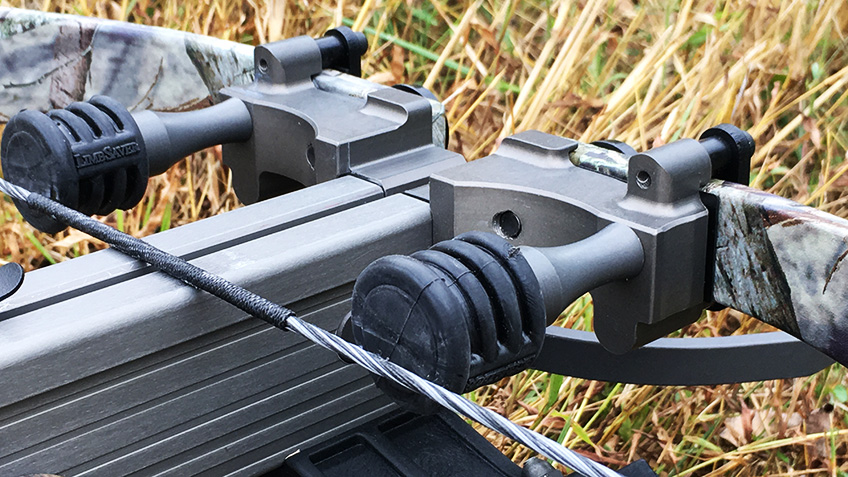
Whereas the limbs and stock are cloaked with Mossy Oak Break-Up Country camouflage, the aluminum barrel isn’t. At the rear of the rail is found the fire control unit with the renowned Guardian Anti Dry-Fire system, which is topped with a scope base to attach the included Octane Dead Zone scope. Unlike some crossbows, the Micro Axe 340 isn’t equipped with an automatic safety; however, this is no different than firearms. Once cocked, the two-position safety must be pushed downward. As for the single-stage trigger, according to a Lyman Digital Trigger Gauge, it broke at 3 pounds, 8.1 ounces and I noted no creep. Overall, it was a respectable trigger for an economy model.
The stock’s fore-end has a palm-filling swell near its bottom, and it flares at the top to reduce the odds of an errant digit finding its way into the path of the released string. As with the pistol grip, the forearm has rubber panels to increase purchase. Other noteworthy features of the Feather-Lite Skeletonized stock include: oversized trigger guard (to accommodate a gloved finger); finger grooves on the pistol grip; a bilateral cheek piece; and attachment points for a sling. The four-bolt quiver bracket is attached directly to the bottom of the rail.
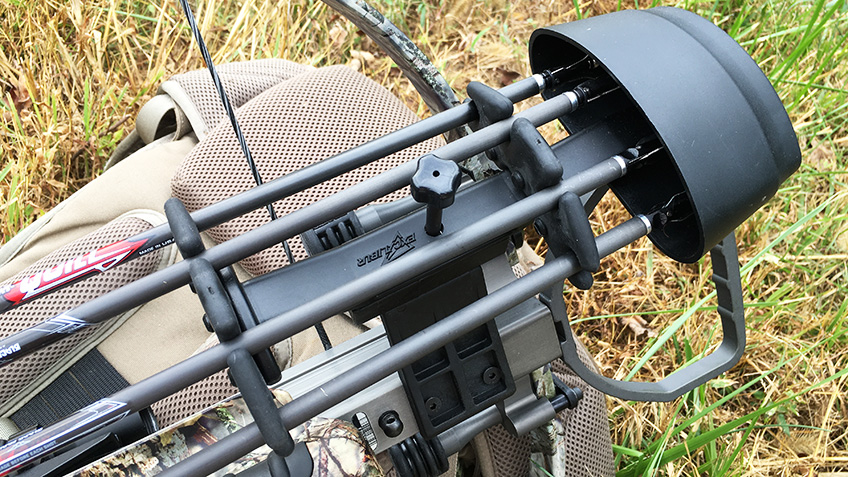
In less than 15 minutes, I had the sample Micro Axe 340 unpackaged, assembled and topped with the included Octane Dead Zone scope. All necessary hardware and tools are provided. After sending several Black Eagle-produced 16.5-inch Quill bolts downrange to zero the crossbow, I then shot three, three-shot groups at 30 and 40 yards from a sandbag rest to determine the bow’s accuracy. At 30 yards the average group was 1.04 inches, with the smallest measuring 0.84-inch. At 40 yards, the numbers were 1.53 inches and 1.03 inches, respectively. According to a Competition Electronics ProChrono Digital chronograph, the mean velocity at 3 feet when using the provided Quill bolts and 100-grain field points for three consecutive shots was 341.7 fps—virtually identical to the published speed.
With formal testing completed, I then began diligently practicing at varying distances in anticipation of Virginia’s archery opener. Little did I know how quickly the Micro Axe 340 would be field-tested.
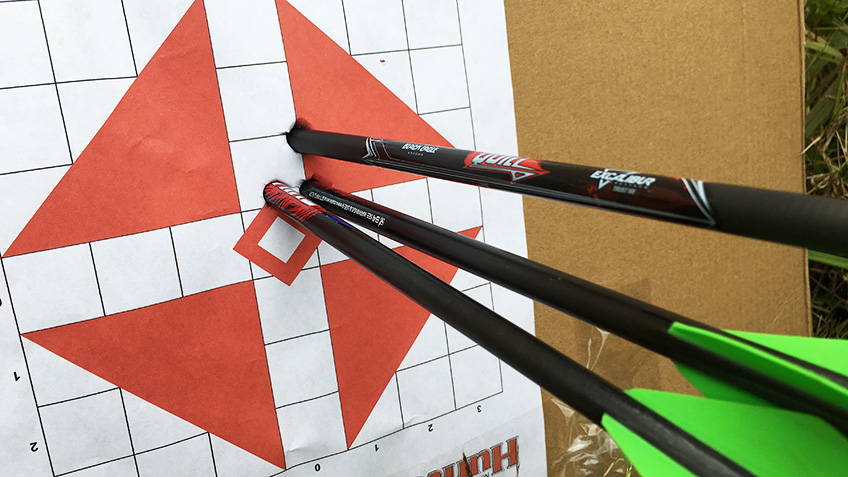
Although the morning proved fruitless, a mature doe did make me appreciate the bow’s light, 5.5-lb. weight and balance. Alerted by another deer that caught my wind, she anxiously watched my direction for movement, stomping nonstop while waiting. Fortunately, the crossbow wasn’t taxing on my arms, and she didn’t see the movement she desired. But, she walked away without offering a clear shot.
Things changed that evening, however. About an hour before dark, a bachelor group of bucks—two eights and a tall-tined nine—skirted my stand at 60 yards, but I didn’t have to wait too long for another opportunity. With less than 15 minutes remaining before legal shooting time ended, a familiar eight point entered the open creek bottom to my left. Having ranged a large poplar tree 46 yards distant several times earlier that evening, and the buck being a few yards behind it, I instinctively whistled to stop it. It worked, and the buck stood motionless. Fluidly, I moved the 50-yard pin on the top of the heart and eased the trigger. The sound of the 100-grain NAP Spitfire Crossbow broadhead connecting was unmistakable. The buck whirled and was on the hoof for only a few seconds before succumbing to the heart shot. Recovery distance was less than 30 yards. The Quill/NAP combination passed completely through the deer, including penetrating one lower shoulder. Talk about a testament of the Micro Axe 340’s capabilities.
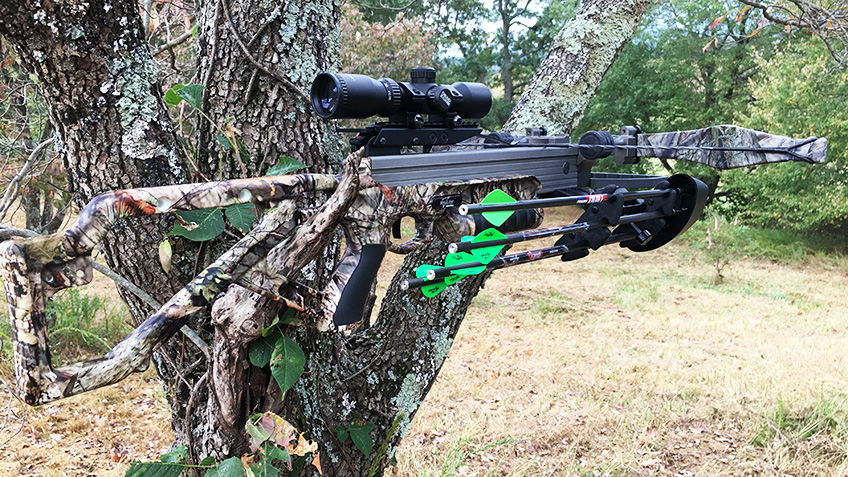
Included with the Micro Axe 340 package is: three Quill bolts with 100-grain field points; four-bolt quiver; Octane Dead Zone scope; scope rings; rope cocking aid; and owner’s manual.
With an MSRP of $750 and featuring a lifetime guarantee, the Micro Axe 340 package is a great deal on an excellent bow. While it might not be the frill-filled hot rod, it’s the one that’ll do what you need when you need it.












